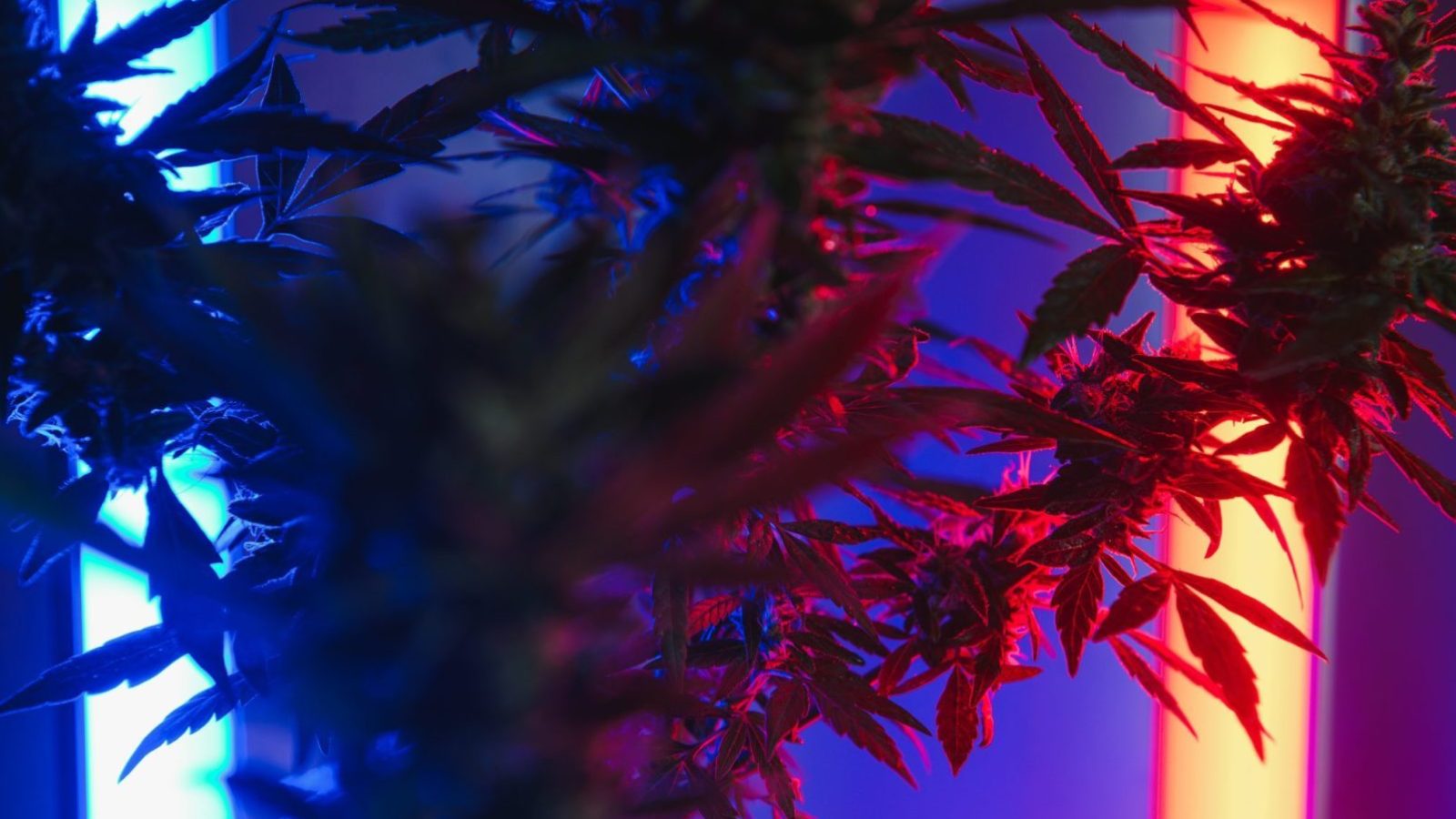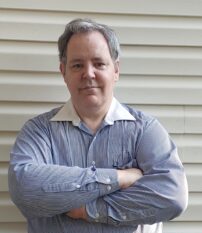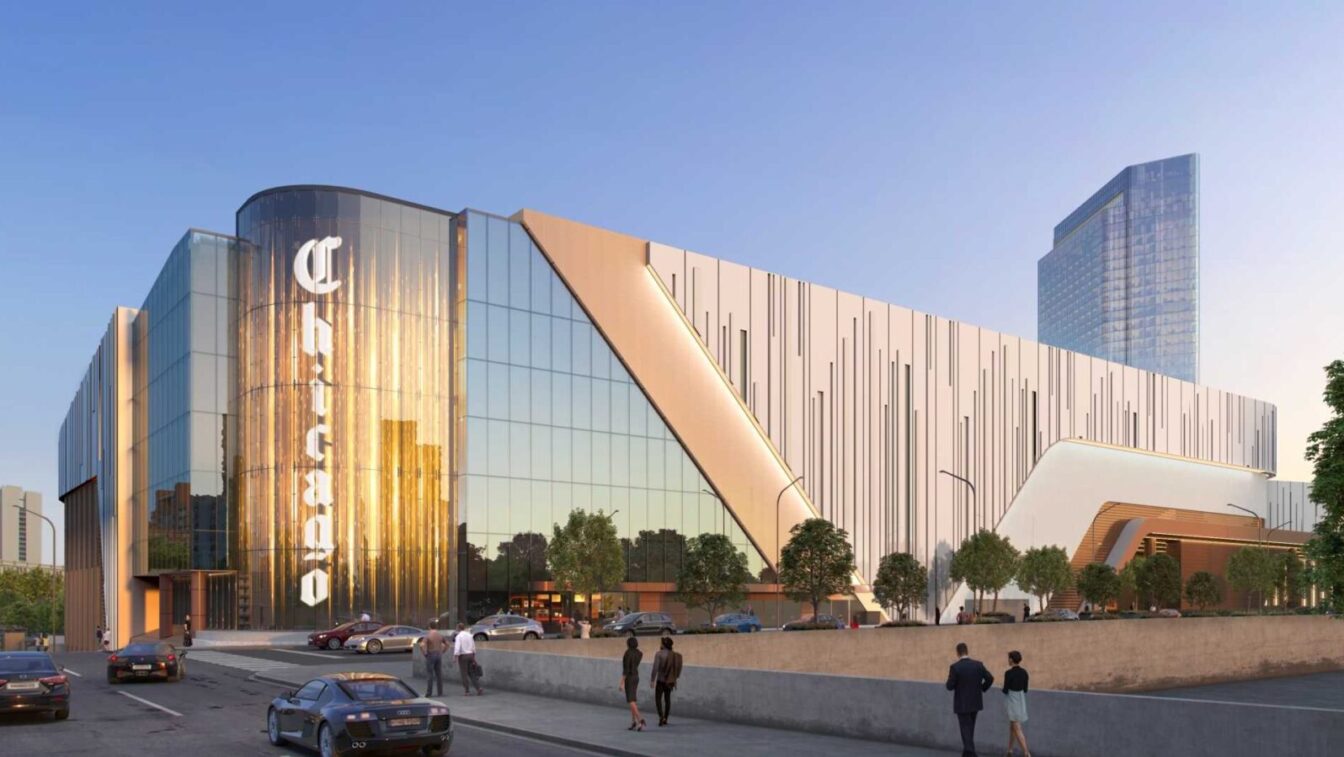Is Cannabis Tourism In Las Vegas A Chimera Or A Cash Cow?
It seems every vice is encouraged inside the casinos — except one
8 min

Downtown Grand CEO Seth Schorr is surely no one’s idea of a stoner. He’s not been known to light up spliffs in public or sport Rastafarian dreadlocks, let alone address anyone as “man.” But he’s become the unlikely face of those who want to see Nevada’s signature industry — casinos — embrace its newest one — cannabis.
“It’s just one of those things where we keep putting our heads in the sand,” lamented Clark County Commissioner Tick Segerblom recently. “Once the casinos can have it inside, it’ll be something we can blast to the world.”
Others are skeptical, including Weed and Loathing in Las Vegas author Chris Kudialis. “The financial incentive just isn’t there,” he responded. “Casinos have always been motivated to play by the rules because the revenue and the possibility for profit isn’t as large with cannabis as it is with the gaming license. It’s not even close.”
Talk to a few movers and shakers in the Sin City scene — as Casino Reports did — and the picture that emerges is of a casino industry caught between a rock and a hard place. On the one side, independent cannabis dispensaries are inhaling what business there is. However, the federal government continues to regard loco weed as a no-fly zone — and woe betide the casino that goes there. Or so conventional wisdom holds.
Schorr to the fore
Such was the accepted status quo until casino boss Schorr lit up debate in May, at a forum co-sponsored by the the Cannabis Policy Institute and the International Gaming Institute of the University of Nevada-Las Vegas. The debate was held — where else? — on campus, combining high times with higher learning.
Noting that it been 10 years since recreational cannabis had been legalized in the Silver State, Schorr inveighed, “The question is, is it time we push the envelope? In Las Vegas, we’re competing against other jurisdictions. Online gaming wasn’t a thing 10 years ago. Visitation is down in Las Vegas. We need every tool in the toolbox as a city to drive visitation. Maybe 10 years ago, you had to be conservative, but today it’s got to be on the table.”
(Numerous attempts were made to contact Schorr for this story, to no avail.)
While Schorr conceded that there may not be a market for weed-in-casinos, he asked whether or not it ought to be tried. “Not every property would go all in, but I think it’s large enough that it would work. We can’t afford to miss any opportunity. We can’t rest on our laurels. … We’re in the early innings of what cannabis policy looks like. I don’t believe we’ve scratched the surface in terms of what cannabis tourism can look like.”
Although Segerblom didn’t speak at the forum, the longtime lawmaker sings from the same hymnal as Schorr. “It fits so perfectly with our personality,” he told Casino Reports. “Kind of like, ‘What Happens in Nevada Stays in Nevada,’” Segerblom offered, riffing on the old Las Vegas Convention & Visitors Authority slogan, “What happens here, stays here.”
“It’s like speaking to crazy people,” Segerblom said of advocating cannabis in casinos. “They have no clue about what we’re talking about as far as a potential tourism [draw].” He extrapolates a potential of as many as four or five million of the 41 million tourists who visited Las Vegas last year. “It’s a huge market and it’s totally untapped. It’s unbelievably high.
“Let’s promote ourselves as the new Amsterdam. I’ve been saying that for 10, 12 years. This is the kind of place that, even if they’re doing it in New York or wherever, make Las Vegas the face of it.”
Fear and frowning
Segerblom’s views would run smack into the austere disapproval of the Nevada Resort Association (NRA), widely viewed as the principal obstacle to gambling on ganja. (NRA Executive Director Virginia Valentine was given multiple opportunities to comment and did not do so.)
The lobbying arm of the Silver State’s casinos, the NRA is also credited/blamed for the requirement that cannabis dispensaries can be no closer than 1,500 feet to the edge of a casino’s property. Also, legally purchased marijuana cannot be delivered to casino-hotels. (Black-market weed, of course, operates under no such restriction.)
“I believe it was Virginia Valentine who advocated for that and made that happen,” said Kudialis of the dispensary restriction. The barrier, incidentally, is identical to the distance requirements applying to schools and houses of worship when casino siting is considered.
“It was absolutely arbitrary,” laughed lobbyist David Goldwater when asked about the 1,500-foot no-go zone. (Goldwater co-owns a dispensary that operates a stoner’s throw from the venerable Sahara hotel-casino.)
“For the purposes of managing the Strip corridor, there are people that believe that it’s better to keep the [pot-using] folks further away, so their customers stay closer. There’s some friction between their customers and my customers, and I understand that,” Goldwater said with additional mirth.
Casinos are not believed to be scared of wacky tobacco per se, but rather that Uncle Sam may put his foot down. “For the longest time, there was this assumption that — especially when [President Joe] Biden was elected — cannabis was going to be rescheduled or made federally legal or decriminalized,” related Kudialis.
Had marijuana been designated a Schedule Three drug, let alone decriminalized (so the general thinking goes), the casino industry would have taken a drag, even though the NRA opposed cannabis-consumption lounges up to the bitter end.
Crimes and punishment
Casinos are believed to have a pronounced — some would say exaggerated — fear of federal intervention, up to and including the seizure of their ultra-lucrative pleasure palaces. Given that scenario, UNLV law professor Terry Johnson prescribes an ounce of caution. As a member of the Nevada Gaming Control Board, Johnson authored the 2013 memorandum that advised casinos to just say no to cannabis.
“It was from a perspective and mindset of being safe rather than sorry,” Johnson recalled from his UNLV office. “At that time, the gaming regulators took the position that it would be considered unsuitable for persons licensed in gaming to also be involved in the cannabis industry.” He said that it “was a challenge, in terms of trying to field questions from the gaming industry especially, about what could they do and what they might not be able to do to avoid any type of regulatory consequences.”
In the ensuing 12 years since the Johnson memo, numerous casinos on the Las Vegas Strip have been fined — sometimes quite severely — for money-laundering: The Venetian, Palazzo, MGM Grand, The Cosmopolitan of Las Vegas, Wynn Las Vegas, Encore Las Vegas, Resorts World … a veritable who’s-who of the Strip. (Only Caesars Entertainment, among the Strip barons, has steered clear of money-laundering trouble.)
Given that casinos have been caught repeatedly in the act of drip-drying unsavory currency and are still in operation, how well-founded are those old fears? Johnson says it’s a fair question. “Now’s probably a good time to revisit the guidance that was given and see what more needs to be said, if anything, about gaming and cannabis regulation,” he conceded.
“Every regulatory body should review its regulations and pronouncements periodically, just to see if they merit some revision,” Johnson expanded. “I’m not saying that it was right or wrong or should remain, but I’d never see any harm in at least having a policy discussion to see if it still meets with today’s needs,” he said of his 2013 strictures.
Roach hotels
Some fear that the reason casinos haven’t pounced on stoners as a potential clientele is not that they spurn them but that they covet them too much. The picture that emerged from Casino Reports’ investigation is of a casino industry that would like to suck all the heightened air out of the cannabis lounges and dispensaries.
Said Segerblom, “Until it’s sold and used openly in casinos, the casinos don’t want to publicize it, because it’s taking money out of the casino and into the dispensaries.” He confided, “But they know it’s inevitable. They’re ready to hit the road as soon as they can do it. But in the meantime they’re trying to hold off creating an industry separate from the casinos … that’s what they’re afraid of” — a line of independent dispensaries up and down the Strip.
Added Kudialis, who has covered the cannabis issue for various and sundry publications, “Obviously, casinos would love to have a dispensary if it was legally permissible. They’d love to bring all the people from the cannabis-consumption lounges back into their casinos.”
He pointed the finger of hypocrisy at Valentine’s NRA: “They wanted to wait until it’s federally legalized. As soon as that happens, they want to move it into the casinos. In the meantime, they didn’t want Nevada to begin allowing it while it was still federally banned and give all these cannabis operators the head start.”
Even Schorr’s motives for advocating weed are held up to scrutiny. Segerblom theorizes that the CEO was simply speaking for himself, not his casino. Speculated Kublialis, “For the longest time he hadn’t been super-vocal about that until just recently. Maybe in the Downtown area there’s more demand among locals.”
Nor does the precarious financial state of the Downtown Grand escape scrutiny. Cannabis sales and smoking would provide an additional revenue stream for a casino that is out of the Fremont Street corner and has been up for sale for years, with no takers yet.
“It’s because Downtown Grand is going under. Things are much worse than have been publicly reported,” said Vital Vegas author Scott Roeben of Schorr’s motivation or, some may say, desperation. “It’s unclear if Downtown Grand can be sold, given its financial entanglements. Occupancy is at 20 percent, no gamblers.”
Up in smoke
But the bottom line that emerged from our study is that there’s insufficient “there” there for the casino industry to bogart the joint. Kudialis, who has extensively studied the business, pegs the Nevada cannabis industry at $800 million to $900 million a year.
But the overwhelming majority of that puffing is done by locals, as much as 70% by Kudialis’ rough measurement. When locals are winnowed out, Las Vegas is left with a $245 million-per-year marijuana buzz, a fraction of what is made from gambling: $8.8 billion.
“I don’t think [it’s] very significant,” said Goldwater, from his perspective as a legitimate marijuana purveyor.
“Truthfully, I don’t know that it’s become a thing yet,” agreed Segerblom, who boasted, “I was smoking marijuana at Jimmy Carter’s White House,” when he worked in the personnel office.
“The collective revenue that they would be able to make from cannabis is such a drop in the bucket compared to the value of a gaming license,” Kudialis said of Big Gaming. “The revenue isn’t there. It’s not worth the risk of compromising a gaming license for making a few dollars on the side with a cannabis business.”
Schorr offered a qualified disagreement at the UNLV forum, saying, “The bigger properties would want to see if it’s successful. But I can see innovative operators like Derek Stevens creating the world’s greatest lounge and if it works, you’d see it at an MGM property. … Not everybody fits that mold, but there are plenty of creative operators.”
But even more to the point, “Marijuana causes people to chill and relax,” Kudialis contended. “They’re not going to be going around from nightclub to bar to slot machine to … whatever other vices there are in a casino. Most of the time they’re going to be smoking and hanging out. Maybe they’ll get something to eat or they’ll go home.”
In other words, the tokens will be laying their money anywhere but on the green felt or into the one-armed bandits.
But for Segerblom — a.k.a. “the Godfather of Marijuana in Nevada” — the smoking gun is a burning joint. “The truth is, you walk down the Strip, all you smell is marijuana,” he said of today’s Las Vegas. “So it’s being used like mad.”





